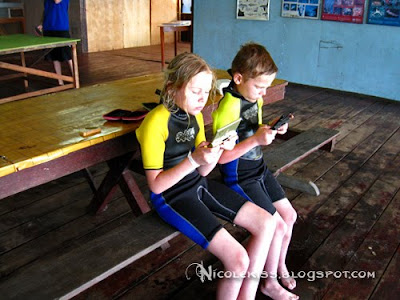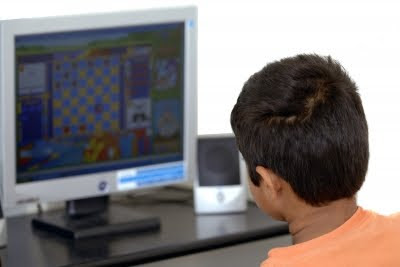0 comment Thursday, June 19, 2014 | admin

For years I've been called mad mean (by those who shall remain nameless) because I've said absolutely not to the DS and the Wii. Christmases in recent years have been . . . umm, well, turbulent.
Reporting from my bunker, the battle shapes up as, "Husband and Mr. M vs. cruel and heartless Mom."
Putting aside the fact these gadgets aren't cheap, I've always thought that most children spend too much time on the computer or watching TV and it's not healthy. Turns out . . . I was right.
Citing an article from a liberal progressive source, I am, but I'll take my told-you-so ammo wherever I can get it.
This must-read article is called "7 Things You Should Know About Your Internet-Interrupted Brain."
 Photo credit: Arvind Balaraman
Photo credit: Arvind BalaramanIt explains how exposure to computers, video games, and television affects our brains and diminishes our ability to achieve.
Children, with their developing brains, are particularly vulnerable.
Here, a few snippets from the article:
Too many interruptions, as Carr points out, and you lose your ability to move information from working into long term memory, where we can retrieve, contemplate and re-enact it -- in other words, think. Long term memories are for many of us our brain's "savings." They're what we will depend on in life to work and survive. We need such memories for learning, for pleasure and for creativity, and happen far less if we ceaselessly multitask through multimedia.
The new ways we use our brains also provokes hyper-arousal, the nervous, keyed up feeling that comes from doing so many things all at once. Too much arousal and your buzzing brain can't think straight. Without good long term memory and the thoughtful, deeper learning it provides, youngsters may never fully accomplish what they might. They run the risk of spending their lives as flunkies, rather than getting their chance to be the boss.
* * *
The hyperfast interactions of video games and the [inter]net produce a state of overwhelmed sensation, a kind of "can you top this" sensory overload that soon becomes its own reward. The effects are particularly damaging to kids. As they jump from image to image many kids become so over-aroused that they cannot sleep. They soon find vending machines chocked full of energy drinks that keep them awake. As caffeine reduces normal sleep, more teenagers turn to alcohol or pills in order to get any kind of rest. They fall into the "Up-Down Trap" so common to entertainers, performers and workaholic professionals. Soon they're hooked to more than their monitors.So for as long as I can hold out, Mr. M will remain wii-less, the no-gadget lone ranger, walking the street. He'll keep riding his bike and playing with his buddies, drawing chalk figures on sidewalks, collecting rocks, scootering around the neighborhood, and capturing bugs.
And you can't put a price tag on that.
Labels: Attention, Children, Computers, Ds, Focus, Interrupted Brain, Learning, Long-Term Memory, Matthew Edlund, Video Games
